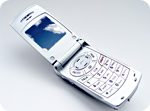
Class action lawsuit calls out AT&T for aiding cellphone thieves for profit
Sunday, April 29, 2012 by: J. D. Heyes
Tags: cell phones, thieves, lawsuit
- European Court of Justice: Healthcare professionals who promoted or administered COVID-19 vaccines are CRIMINALLY LIABLE for any harm caused
- Oncologist warns of ‘terrifyingly aggressive’ cancers in children, linked to immune suppression from COVID vaccines
- Newly released JFK files reveal Pentagon's role in creating Lyme disease and covid in the same lab
- Britain’s descent into police state censorship: Parents raided for questioning their daughter’s school system online
- Ancient kitchen secrets REVEALED: How garlic, ginger and green onions fight cancer and heart disease
- DARPA: The shadowy innovator behind the world’s most advanced military technologies
- NIH study, buried for decades, reveals that Flu Shots INCREASE elderly deaths, not prevent them
- COVID-19 scandal linked to CANCER SURGE: Billionaire researcher sounds alarm
- “Old Man in a Chair”: The COVID-19 pandemic was a carefully orchestrated scheme for global control
- Decentralize TV: Dr. Leonard Coldwell reveals shocking, heavily censored truths about CANCER, healing and the medical mafia complex
- Cinnamon plays a critical role in diabetes management
- Musk targets “strangely wealthy” lawmakers in DOGE probe, names Pelosi, McConnell, Schumer
- Utah governor allows ban on LGBT pride flags in public buildings and schools, will take effect without his signature
- RFK Jr. is reforming Americans’ health: A shift in power and paradigm
- FRAUD ALERT: Details DEMOCRATS do NOT want you to know about the $40 BILLION wasted on Fed-loaded credit cards cancelled by DOGE
- Scientists unveil breakthrough method to eliminate "Forever Chemicals" from water, transforming waste into graphene
- Massive egg substitution recall: Bleach contamination sparks nationwide concern
- Postcard from 1875 highlights smallpox vaccine’s failure: Lessons for today’s COVID-19 response
- Newly released JFK files reveal Pentagon's role in creating Lyme disease and covid in the same lab
- CDC finally halts $11 billion COVID funding scam as health officials admit the ‘pandemic’ was a fraud
- Analysis: The coming economic collapse, a mass uprising and Trump's three secret weapons to halt the growing revolt
- Kiss Your Genetic Privacy Good-Bye! 23andMe Gets Green Light to Sell Your Intimate Genetic Details to Anyone They Want
- Dr. Suzanne Humphries makes bombshell appearance on Joe Rogan podcast, exposing vaccine industry deception back to POLIOMYELITIS
- DEADLY DECEPTION: How COVID vaccines increased mortality rates and why authorities hid the truth
- Woman contracts WORLD'S DEADLIEST VIRUS after unknowingly being given the WRONG VACCINE
- Oncologist warns of ‘terrifyingly aggressive’ cancers in children, linked to immune suppression from COVID vaccines
- Here are TEN all-natural ways to protect your garden without using harmful chemicals
- Black cumin seed oil emerges as a powerful ally against breast cancer and chronic inflammation
- The hidden dangers in your kitchen: How cooking methods impact diabetes, cancer and aging
- Trump's greatest betrayal so far: Accelerating Middle East wars, silencing dissent, and serving Zionist masters
- Senate Democrats deny censorship industrial complex existed, defend government's role in silencing dissent
- Sugar-free deception: Artificial sweeteners hijack hunger signals, fuel obesity epidemic, study warns
- “Independent” anti-Russia outlet MEDUZA faces COLLAPSE as US funding dries up
- NIH study, buried for decades, reveals that Flu Shots INCREASE elderly deaths, not prevent them
- The Health Ranger releases “Vaccine Zombie” song and music video, using AI-animated zombies for the music video
- Discovery of vast underground city beneath Giza pyramids challenges human history
- Newly released JFK files reveal Pentagon's role in creating Lyme disease and covid in the same lab
- California's social media censorship law struck down: A victory for free speech or a threat to online safety?
- EPA advisor admits the agency is funneling billions to climate groups ahead of Trump’s return to White House
- The Health Ranger releases “Vaccine Zombie” song and music video, using AI-animated zombies for the music video
- Dr. Mike Yeadon releases 15-minute testimony - WATCH - about genocidal intent of COVID “vaccines”
- Florida takes a stand: DeSantis proposes permanent ban on mRNA vaccine mandates
- Mike Adams releases country western hit single: Goin’ Back in Time is Comin’ Home
- “Why we influenced the 2020 elections”: Facebook files reveal the coordinated effort to bury the Hunter Biden laptop story
- Unpacking the Lies That We’ve Been Fed – new song and music video released by Mike Adams, the Health Ranger
- House Intelligence Committee calls for the ARREST and PROSECUTION of Dr. Anthony Fauci
- The pandemic as a tool for INDOCTRINATION: Understanding “The Indoctrinated Brain” by Dr. Michael Nehls
- Rep. Nancy Mace introduces bill to ban biological males from female facilities on federal property
- Mike Adams releases music poetry sensation: A Child of God
- Sugarcane extract superior to cholesterol-lowering drugs?
- Survival 101: Effective EMF blocking techniques
- Michigan sheriff announces criminal investigation into 2020 election crimes, Dominion Voting Systems
- Peter Rost exposes Big Pharma corruption in his book “The Whistleblower: Confessions of a Healthcare Hitman”
- Migrants are taking advantage of recent hurricanes to scam residents and loot their homes
- Red Cross issues warning to stop blood plasma donations from vaccinated people
- Scientists confirm: GENIUS brain function can be spontaneously unleashed in humans without any apparent cause
- EPA advisor admits the agency is funneling billions to climate groups ahead of Trump’s return to White House
- HYSSOP: What research reveals about the health benefits of this ancient holy herb
- Two containers with completed ballots fall out of truck in Florida
- Fully vaccinated about to see “tsunami” of illness and death, warns virologist
- Global leaders unite to clamp down on “misinformation” with UN-backed Cascais Declaration
- BREAKING: 2025 NDAA authorizes mandatory military draft of WOMEN across America… as Pentagon pursues global NUCLEAR war with both Russia and China at the same time
- Michael Yon warns of a ZIONIST TAKEOVER in Trump’s second administration
- BOMBSHELL: DNA testing kits are a SCAM to develop ethnic-specific bioweapons
- Ozempic and Wegovy weight loss drugs are injectable LIZARD VENOM PEPTIDES that may unleash a devastating wave of organ failure… side effects align with symptoms of SNAKE BITES
- Israeli soldiers accused of even more torture and abuse in the West Bank
- These 13 countries just signed an agreement to engineer a global FAMINE by destroying food supply
- NASA admits that climate change occurs because of changes in Earth’s solar orbit, and NOT because of SUVs and fossil fuels
- RFK Jr. clears key hurdle: Sen. Susan Collins backs controversial HHS nominee, signaling a new era for health policy
- Sermon 30: How Jesus reveals Caesar’s FAKE CURRENCY and FALSE AUTHORITY
- Coriander seeds: Ancient medicine backed by modern science
- Arizona officials claim Maricopa County needs 10-13 days to tabulate results of the election
Papers filed in Superior Court in Sacramento, Calif., April 11 say the company does that "in order to make millions of dollars in improper profits, by forcing legitimate customers [...] to buy new cell phones, and buy new cell phone plans, while the criminals who stole the phone are able to simply walk into AT&T stores and 're-activate' the devices, using different, cheap, readily available 'SIM' cards (computer chips)."
The suit, filed by three Californians, alleges that AT&T committed conspiracy, fraud, breach of contract, accessory to theft, unfair trade and other improper practices.
In court papers they allege that, "on a regular daily basis in California and elsewhere, the cell phones, Apple Computer Corporation 'iPhones' in particular, are stolen by criminals from lawful purchasers and users."
Deception - for years
The plaintiffs say in their complaint that today's cell phone technology is such that it makes them easy to identify who they really belong to, making it difficult to understand why AT&T would reactivate phones reported as stolen. Unless, of course, it's all about the bottom line.
"Each such cellular device is identifiable, as a handheld cell phone, by the IMEI imprinted on same, and said serial number is readily visible to, and apparent to, any and all stores, businesses, and defendant employees when the device is activated or a new cell phone usage plan is turned on by defendants," says the complaint.
"Nevertheless, for years, defendants have actively and without reservation aided, abetted, and assisted thieves, i.e., possessors of stolen cell phones, in earning illegal theft profits, by turning back on, or 're-activating' said stolen phones."
The plaintiffs said they were "told by AT&T representatives that they will not, and 'cannot,' block and effectively kill usage of such stolen cell phones by thieves and criminal organizations[;] however, such representations are false and fraudulent."
The plaintiffs said AT&T has engaged in such deception for years, forcing customers to buy new phones and new plans, letting the thieves off easy by allowing them simply to reboot the stolen booty with a new SIM card.
Other suits target AT&T
The cell phone scandal, so to speak, is far from the only litigation the telecom giant is facing. A team of attorneys filed suit against the company last year after an investigation by a private consulting firm found AT&T was overstating data usage on some customer's plans by an average of 7-17 percent, and in some cases more than 300 percent.
"We were stunned to discover that AT&T billed for a phone which was left untouched for 10 days, incurring 35 data transactions totaling almost 3,000 KB during that period," Barry L. Davis of Thornton, Davis & Fein, P.A., an Indianapolis firm, told a local Fox television affiliate. That case was also filed in California.
The complaint says that AT&T reported a 27.4% increase in data usage during the fourth quarter of 2010. Attorneys in the case said a significant part of that increase is because of phantom charges by the company.
Not all court cases are going against the nation's biggest telecom. A U.S. Supreme court ruling in April 2011 said AT&T, along with any other company, could block class-action suits from customers in favor of forcing them into binding arbitration instead. That case stemmed from a California couple (trend here?) that had been charged sales tax on mobile phones that AT&T had advertised as "free." The couple believed that instance constituted a fraudulent business practice.
Sources for this article include:
http://www.courthousenews.com/2012/04/12/45547.htm
http://www.fox59.com
http://arstechnica.com
Cell phones at FETCH.news
Get independent news alerts on natural cures, food lab tests, cannabis medicine, science, robotics, drones, privacy and more.
Take Action: Support Natural News by linking to this article from your website
Permalink to this article:
Embed article link: (copy HTML code below):
Reprinting this article:
Non-commercial use OK, cite NaturalNews.com with clickable link.
Follow Natural News on Facebook, Twitter, Google Plus, and Pinterest
Science News & Studies
Medicine News and Information
Food News & Studies
Health News & Studies
Herbs News & Information
Pollution News & Studies
Cancer News & Studies
Climate News & Studies
Survival News & Information
Gear News & Information
News covering technology, stocks, hackers, and more



"Big Tech and mainstream media are constantly trying to silence the independent voices that dare to bring you the truth about toxic food ingredients, dangerous medications and the failed, fraudulent science of the profit-driven medical establishment.
Email is one of the best ways to make sure you stay informed, without the censorship of the tech giants (Google, Apple, Facebook, Twitter, YouTube, etc.). Stay informed and you'll even likely learn information that may help save your own life."
–The Health Ranger, Mike Adams













































